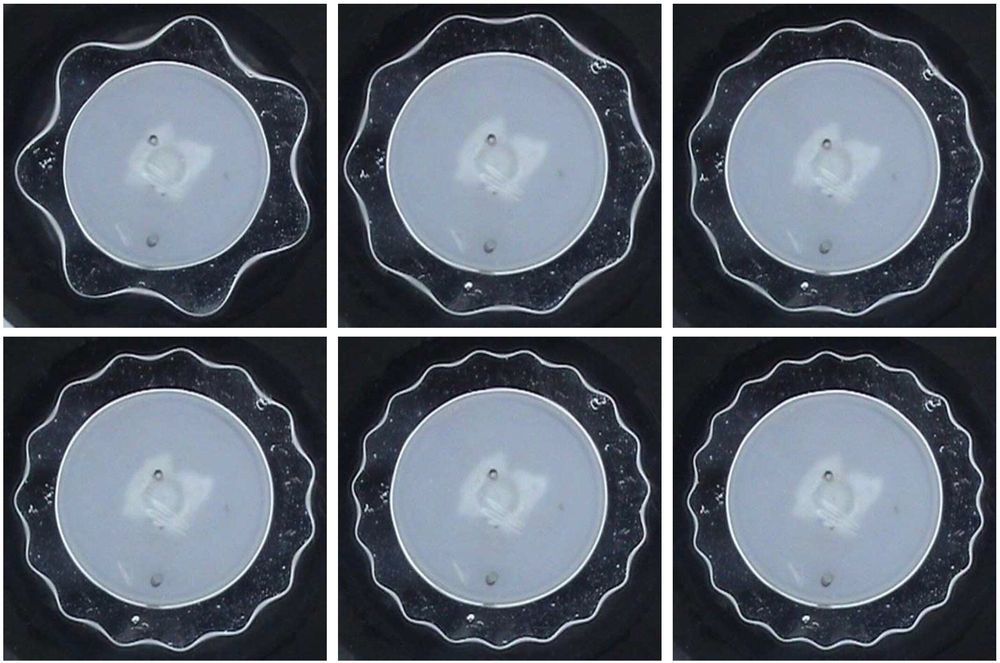A team of researchers at Laroche Laboratory, Université Paris Diderot and Université de Lyon has recently collected the first measurements of the resonance frequencies of a stable torus of fluid. The method they used to collect these observations, outlined in a paper published in Physical Review Letters, could enable the modeling of a variety of large-scale structures that transiently arise in vortex rings.
Vortex rings are torus-shaped vortexes that can appear in both liquids and gases in a variety of settings. In nature, there are several examples of these vortex rings, including underwater bubble rings produced by divers or dolphins, smoke rings, and blood rings in the human heart.
“Although it has been shown that the dynamics of a vortex ring are dominated by large-scale structures at its periphery, the mechanisms governing their appearance are not well understood, reflecting to a large extent the experimental difficulties in generating a stable liquid torus under well-controlled conditions,” Eric Falcon, one of the researchers who carried out the recent study, told Phys.org. “It is in this context that we wanted to make a fluid ring stable.”
